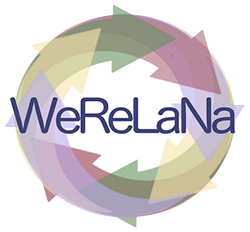Project concluded

Value creation networks for the use of residues in and from agriculture and the food industry as an innovation engine for the bioeconomy
Project Objective
The overarching goal of the “WeReLaNa” project is to open up innovation spaces for the use of residues from agriculture and the food industry – initially in the project region of Upper Franconia, but taking into account transfer potentials for the whole of Bavaria – as well as the networking of stakeholders along the relevant value chains or networks.
In keeping with the cross-sectoral character of the bioeconomy, the three project partners Chemie-Cluster Bayern, Cluster Ernährung and Umweltcluster Bayern bundle their knowledge and address a concrete, cross-cluster innovation topic. Through the exchange of know-how from the recycling and chemical industries to agriculture and the food industry, companies are sensitized to the topic of bioeconomy and bio-based business models and processes. The involvement of cluster members and other stakeholders is intended to contribute to the emergence of new, cross-industry value creation networks. A constant exchange with other Bavarian networks, committees, institutes and research institutions also plays an important role here.
The basis for networking and tapping innovation potential is the creation of an information and data basis. In addition, “meeting opportunities” are to be created for actors in this area, in which innovations are initiated, new business areas are opened up and the relations between Bavarian business and science are strengthened through the transfer of technology and know-how in Bavaria as an innovation location or new cooperations are initiated.
Furthermore, the project pursues the goal of raising awareness of the topic of bioeconomy across industries with a specific focus on residues with special consideration of sustainability aspects. Thus, the project not only contributes significantly to the implementation of the Bavarian bioeconomy strategy, but also contributes to the achievement of the Bavarian climate goals by identifying circular potentials (e.g. in the field of resource conservation or energy generation).
Activities
Mapping of material flows of biogenic residues and actors
At the beginning of the project, an overview of relevant residues and actors in Bavaria, especially in the area of Upper Franconia, is to be gained on the basis of existing tools and platforms – as a basis for the selection of best practices and to create networking potential.
Best Practices
One focus of the project is therefore on the identification of best practices that recycle residual materials particularly efficiently and ecologically advantageously, i.e. on approaches that focus on the up- or recycling of residual materials and take into account the criteria of sustainability and recyclability. By pointing out concrete innovation and savings potentials as well as new, cross-industry business models, the Bavarian agriculture and food industry is strengthened.
The aim is to network relevant actors with each other and thus to initiate cross-industry innovation projects and to accompany these and potential follow-up projects.
Evaluation of the digital commodity exchange
In the cross-cluster project, the Digital Raw Materials Exchange* for sustainable raw materials will be evaluated with regard to resource-conserving value creation networks during the project period and the possibilities and limits of this online tool for the intersectoral use and generation of new, cross-industry value chains will be evaluated.
*The Digital Commodity Exchange was developed by the Competence Center for Nutrition and the Research Institute of the Free State of Bavaria for software-intensive systems and services and funded by the Bavarian State Ministry of Food, Agriculture and Forestry.
Contacts:
Marco Geiger, M.Sc.: marco.geiger@umweltcluster.net
Founding source:
WeReLaNa is cofounded by the Bavarian Ministry of Economic Affairs, Regional Development and Energy.
